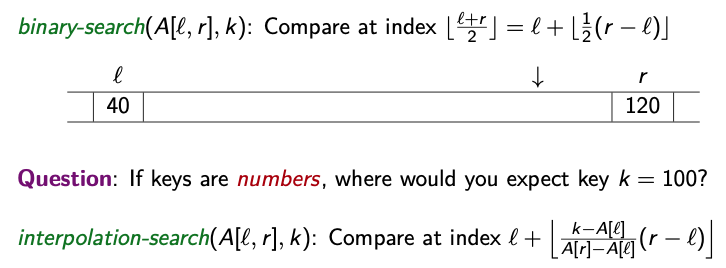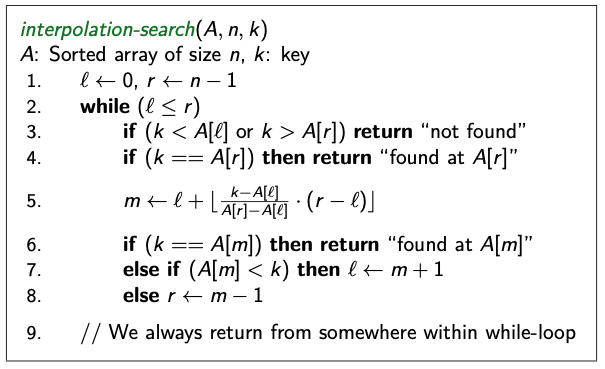Interpolation Search
Interpolation search is an algorithm for searching for a key in an array that has been ordered by numerical values assigned to the keys.
An improvement on Binary Search. Recall the run-times in a sorted array using binary search:
- insert, delete:
- search:
Best-case covered but not expected case
See tutorials, also for average but why?
Works nicely when keys are evenly distributed (uniformly distributed), not as good when they are not. The best distribution would be increased linearly.
Motivation

: Compare at index

Works well if keys are uniformly distributed:
- Recurrence relation is
- Resolves to for average case runtime of interpolation search!
- We have not seen expected runtime
- Best-case runtime is covered in tutorials: Go fetch it!
Questions
It is not possible for a comparison-based searching algorithm to terminate in time.
- False , why?
- The notation represents a time complexity that is strictly smaller than . It means that the algorithm runs in sub-logarithmic time, implying a faster runtime than logarithmic time. It is possible for a comparison-based searching algorithm to terminate in sub-logarithmic time. For example, if the elements are already sorted, a binary search algorithm can locate the desired element in time. This time complexity is better than , but it still falls within the category of comparison-based searching algorithms.
Consider an algorithm that runs both Binary Search and Interpolation Search simultaneously until one of them stops. The worst-case runtime will be bounded by and if the keys are uniformly distributed we would expect a runtime of .
- True, why??